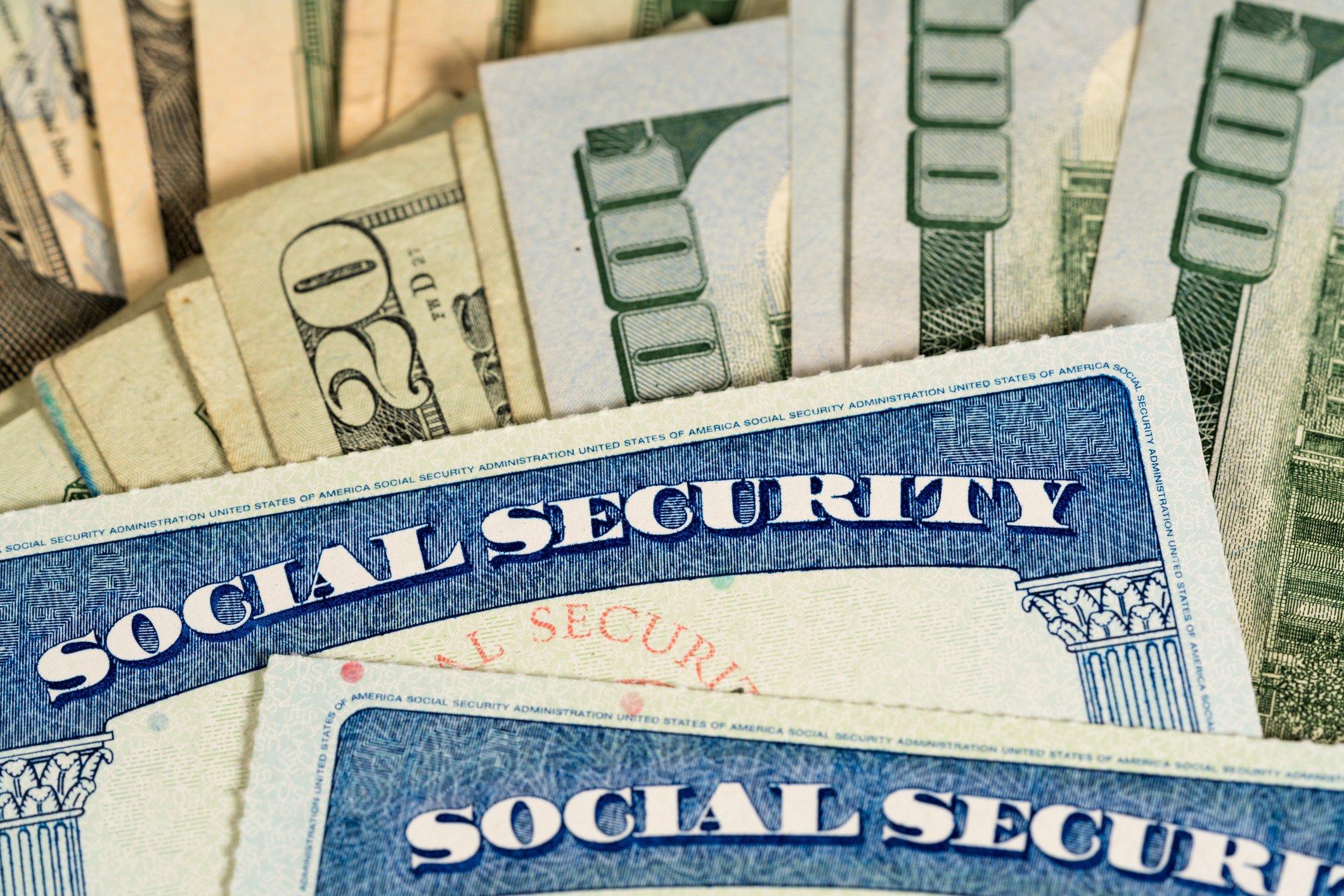It's a well-known fact that most Americans aren't in great financial shape. An estimated 69% of U.S. adults have less than $1,000 in savings, while 34% have no savings at all. And the Economic Policy Institute reports that almost half of Americans have nothing to show in retirement savings either.
However, while it's one thing to not have many assets to speak of, it's another thing to reach the point of having a negative net worth -- and that's the category 14% of American households fall into. Negative net worth represents a financial scenario where your total debts exceed your total assets. If, for example, you have $500 in short-term savings, $4,500 in a retirement account, and $6,000 in credit card debt, you'll have a net worth of negative $1,000.

IMAGE SOURCE: GETTY IMAGES.
Now when we think about the reasons why a household might have negative net worth, we may be inclined to blame mortgage and credit card debt. Yet in a New York Federal Reserve study, which found that over 16 million households have a negative net worth, the single largest culprit was none other than ridiculous loads of student debt. Now that's a good reason to think before you borrow.
Negative net worth: how we got here
Americans have a number of options for accumulating assets. In its study, the Fed identified respondents' total assets, including short-term savings, retirement savings, investments, home values, vehicles, and other tangible items of notable value. It then calculated respondents' total outstanding debts, including mortgage debt, home equity lines of credit, auto loans, credit card balances, and student debt. When the total amount of debt for a given household exceeded its total assets, that household was classified as having negative net worth.
What's really surprising, however, is the role student debt has played in propelling so many households into negative-net-worth status. In fact, the Fed found that among households with the greatest negative net worth, the majority of debt comes in the form of student loans. And the more student debt a household has, the greater its negative net worth is likely to be. In fact, among households whose net worth measures negative-$12,500 to negative-$46,300, student loans represent 40% of total debt, compared with less than 10% for households that don't have negative net worth.
Of course, the student loan crisis is by no means news. Americans owe more than $1.4 trillion in student loans, and at present, a good 44 million adults are still paying off educational debt. To give that some context, total student loan debt in the country exceeds credit card debt by roughly $620 billion. And while many college hopefuls have no choice but to rack up debt in pursuit of an education, their borrowing is also increasing year over year. The average Class of 2016 graduate came away with $37,172 in student debt, which represents a 6% increase from the previous year. And unless students collectively get smarter and more judicious about borrowing, we're likely to see an even greater uptick in negative net worth households in the coming years.
Other contributing factors
It's not just student loans, however, that contribute to the problem of negative net worth. Only 20% of households with negative net worth own their own homes, which means they're spending money on rent rather than using it to build wealth. In fact, vehicles are the primary assets held by negative net worth households.
That said, owning a home can also lead to negative net worth, especially given the number of Americans with negative equity. Of those surveyed, 36% of negative net worth households are underwater on their mortgages. And while the ongoing housing market recovery might allow some of these households to dig out of their hole, that still only helps those folks in a strong enough financial position to buy a home in the first place.
Another factor that plays into negative net worth is health. Households with a negative net worth are more likely to include at least one member who experienced a recent major health issue or deterioration. Income, or lack thereof, also contributes to negative net worth. Households with a negative net worth tend to have considerably lower incomes than those with a positive net worth -- $39,077 versus $86,309, respectively.
Breaking the cycle
The good news in all of this is that for many households, negative net worth is a temporary condition. For example, recent college grads who emerge loaded with debt have an opportunity to pay off their loans early on in their careers, and once they do, they can quickly begin accumulating assets.
The downside, however, is that even just a few years of having negative net worth can impact your ability to save for the future and borrow money at a favorable rate -- which is why it's a better idea to avoid taking on too much debt in the first place. Since student loan debt plays such a key role in pushing households over the edge, a good way to preserve your financial standing is to avoid borrowing too heavily for college in the first place. While limiting your debt might, in turn, limit your choices, opting for a public in-state school over a private one can shave $24,000 off your tuition costs each year. Commuting from home versus dorming, meanwhile, can save you $10,000 or more annually.
Furthermore, the less student debt you graduate with, the better positioned you'll be to buy a home earlier on in life. And the less money you throw away on rent (an expense, not an asset), the greater your chances of avoiding negative net worth status at some point in time or another.
At the end of the day, net worth is a simple calculation based on the assets you have versus your outstanding debts. Make sure the former category always exceeds the latter, and you'll be in pretty good shape for the long haul.





